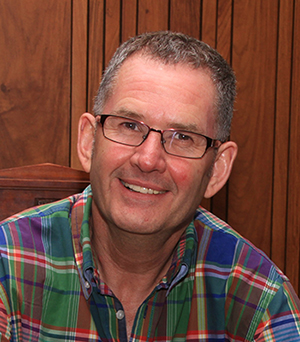
The largest provider of business education in Africa and one of the largest in the world

The research of Prof Paul Prinsloo, Department of Business Management, CEMS, was cited 418 times in 2019, according to Google Scholar, and has been cited 2 072 times since 2013.
There's an ongoing debate among academics globally as to how many citations it takes for an article or scholar to be considered influential. Some say it’s not the number of citations that matters but the longevity of the work and where it is published. Others believe what really counts is whether or not other researchers accept and build on the ideas or theories of the researcher concerned.
By any of these yardsticks, the work of Prof Paul Prinsloo, open and distance learning (ODL) research professor at the Department of Business Management in Unisa’s College of Economic and Management Sciences (CEMS) and winner of two Unisa 2020 Research & Innovation Awards, makes the grade.
In 2019 alone, his research was cited 418 times, according to Google Scholar.
This was not a one-year wonder, however. Prinsloo’s work has been cited 2 072 times since 2013.
That was the year he and Dr Sharon Slade of the Open University United Kingdom co-wrote their article entitled Learning analytics: Ethical dilemmas and issues. Originally published in the American Behavioral Scientist, it has been cited 543 times…and counting.
What’s more, the Open University UK actually used this paper in 2014 to develop its policy on the ethical use of student data for learning analytics.
The ripple effect of that paper and others that followed it has gone even further. "When I got my B3 rating from the National Research Foundation (NRF) at the end of 2018, the scholars who reviewed my application referred to that particular paper," says Prinsloo.
As a B3-rated researcher, he has received extensive international recognition for his work but is proudest of the accolades from the European Distance and E-Learning Network (EDEN).
"Much distance education theory and research originated in the European context with very strong input from Canada. In a sense, they are like the mothers and fathers of the discipline so recognition from EDEN means a great deal to me," Prinsloo says.
To date, EDEN has recognised him three times. The first time was in 2014 when he and Dr Sharon Slade won the best paper award at the network’s annual workshop. The second was at the EDEN conference in June 2018, when Prinsloo, Slade and Dr Mohammad Khalil of the Delft University of Technology won the best paper award again.
Most recently, in June 2019, Prinsloo became the first scholar from Africa to become a Fellow of EDEN. This distinction earned him one of his two Unisa R&I awards for 2020.
He also became a member of the prestigious Unisa Million Rand Club, in recognition of an eye-wateringly large research grant from a consortium of foundations comprising the VolkswagenStiftung (Germany), Riksbankens Jubileumsfond (Sweden), Compagnia di San Paolo (Italy) and Novo Nordisk Fonden (Denmark).
This grant is for €1.478 million (around R29.5 million at current exchange rates) and runs from 2020 to 2024. Prinsloo shares it with colleagues from Göttingen University in Germany, the National Polytechnic Institute of Mexico and the University of Gothenburg in Sweden.
They will be using the funding to explore a particularly interesting research question: How is secondary-level schooling being refigured through digital technology in different regions of the world and in what ways are these changes reproducing, exacerbating or alleviating in/equality?
This research will home in on six countries, Argentina, Botswana, Germany, Mexico, South Africa and Sweden, exploring in/equality in relation to education policies, as well as in how advantaged and disadvantaged schools in each country engage with digital technology. Prinsloo’s part of this research will focus on four low-income and four higher income schools in Botswana and South Africa.
Given the increasing digitalisation and datafication of education and the impact of the Covid-19 pandemic on teaching, assessment and learning, it is hard to imagine a research topic more relevant to the education dilemmas of today. Prinsloo’s participation ensures that Unisa is right there at the cutting edge.
* By Clairwyn van der Merwe, Contract writer, Directorate of Research Support
Publish date: 2020-06-10 00:00:00.0